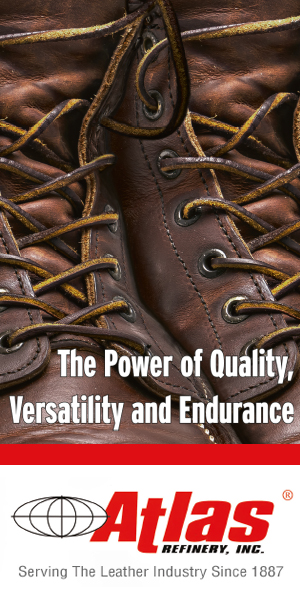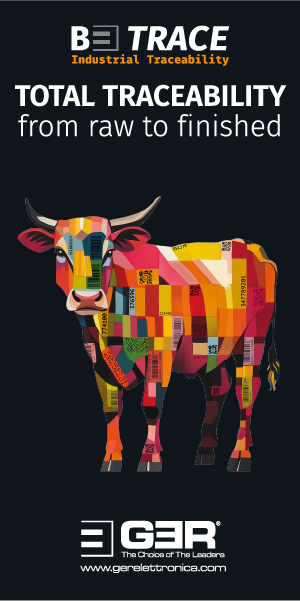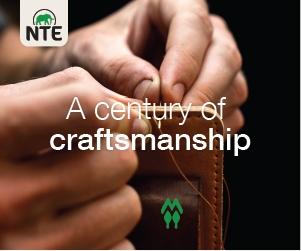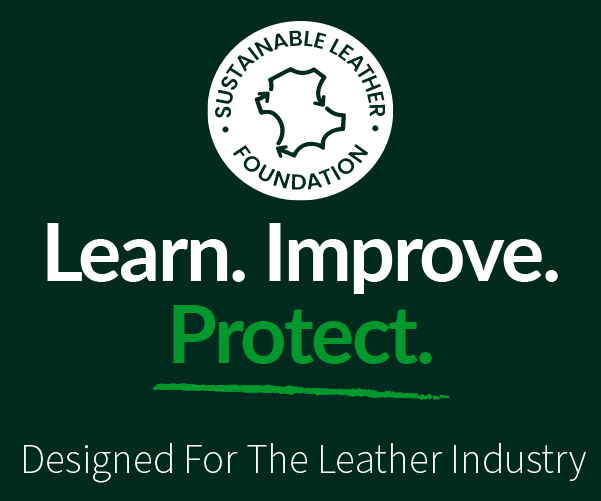Small-batch boots

A footwear manufacturer, a tanner and a whiskey company mixed together centuries of know-how and craftsmanship to make a special-edition work boot. It proved to be a recipe for success.
A limited-edition version of Wolverine’s 1000 Mile boot, featuring special materials from two other centenarian US companies, sold out within hours of its launch in early October. The footwear company joined forces with bourbon brand Old Rip Van Winkle and leather manufacturer Horween to create the limited-edition boot, which they said was a tribute to US workers. Wolverine describes the 1000 Mile boot, which it first made in 1914, as the US’s “original work boot”; it says this popular product is “the soul of the company”.
It still makes the boot today using the original design specifications, with more than 80 craftspeople at its production facility in Rockford, Michigan, involved in the making of every pair. This special whiskey-coloured edition is a particularly small-batch production run, though, and Wolverine has not published the number of pairs it has made.
Manufacturing traditions
Tradition means much to Wolverine. It began as a tannery in Rockford in 1883 and quickly moved on to making gloves and footwear from its own leather to supply working people in the local area and further afield. By the time the footwear group was producing its first boots, the founder of the Old Rip Van Winkle brand, Julian (Pappy) Van Winkle was making a name for himself in the whiskey industry in Kentucky. He began as a bourbon salesman in the 1890s and, with a business partner, acquired his first distillery in 1910.The Rockford tannery closed in 2009 and Wolverine now sources all of its leather from external suppliers. For this special version of the 1000 Mile boot, it uses an aniline-finish leather called Cavalier Squash from Horween Leather Company, another US manufacturer from the same era, having been founded in Chicago in 1905. Horween still makes its leathers using what it calls time-honoured techniques and old recipes. It uses a combined tannage to make Cavalier Squash, followed by hot stuffing with a secret blend of natural oils and greases.
A whiskey barrel’s useful life
Another special material to go into the limited-edition version of the boot is wood from white oak bourbon barrels, which Wolverine has used to form the heel. This material came directly from barrels that have aged Old Rip Van Winkle whiskey. Current owner of the brand, Preston Van Winkle, is a representative of the fourth generation of his family to have run the company since Pappy Van Winkle set it up. Old Rip Van Winkle is still made using the family’s recipe, but no longer at the company’s own distillery. Its recent history includes forming a partnership with another distiller, Buffalo Trace.
Last year, when the time came for Buffalo Trace to dump some used barrels, Preston Van Winkle asked if he could hold some back specifically for this project. He explains that, while his company owns the whiskey, the barrels belong Buffalo Trace. These barrels were of varying ages; some had hosted bourbon for 15 years, others for 20 and some for as many as 23 years. However, by law, bourbon barrels can only be used to produce one batch of whiskey; these vessels had served their intended purpose and their whiskey-aging days were behind them.
Preston Van Winkle’s sisters run a bourbon-inspired company called Pappy & Co in Louisville. They sell a wide range of products, some of which make use of old barrels. In some instances, they use the barrels to enhance food products, including pepper sauce, maple syrup and coffee, infusing these items with the aromas of oak and bourbon. Other products, such as chopping boards and wooden-handled bar-knives, give the oak itself a new, useful life. It is precisely this that Old Rip Van Winkle has sought to do now in supplying the same material for Wolverine to use in the heels of the special 1000 Mile boots.
Enduring craftsmanship
Wolverine believes that what makes it, Horween and Old Rip Van Winkle good partners for this project is that all three offer fine examples of “enduring American craftsmanship” and provide products today that they make largely the same way as their forebears did 100 years ago and more. Only special companies can make that claim and they are few in number.Because this project was intended as a tribute to workers, the partners decided that all of the proceeds from the sale of the boots should go towards supporting a training programme called the mikeroweWORKS Foundation. This non-profit organisation aims to help people prepare for and find skilled work as mechanics, plumbers, electricians, in construction and other sectors. Wolverine is a long-time supporter of the organisation, whose founder, Mike Rowe, insists there is a skills-gap in the US because young people have been discouraged from taking jobs that appear unglamorous.
“My foundation is committed to helping more people get the necessary training they need to fill these in-demand jobs,” Mr Rowe says. “Wolverine and Old Rip Van Winkle understand this problem better than most, and their commitment to the American worker is laudable. I’m grateful for their support and leadership, and I’m hopeful more companies will follow this example.”































